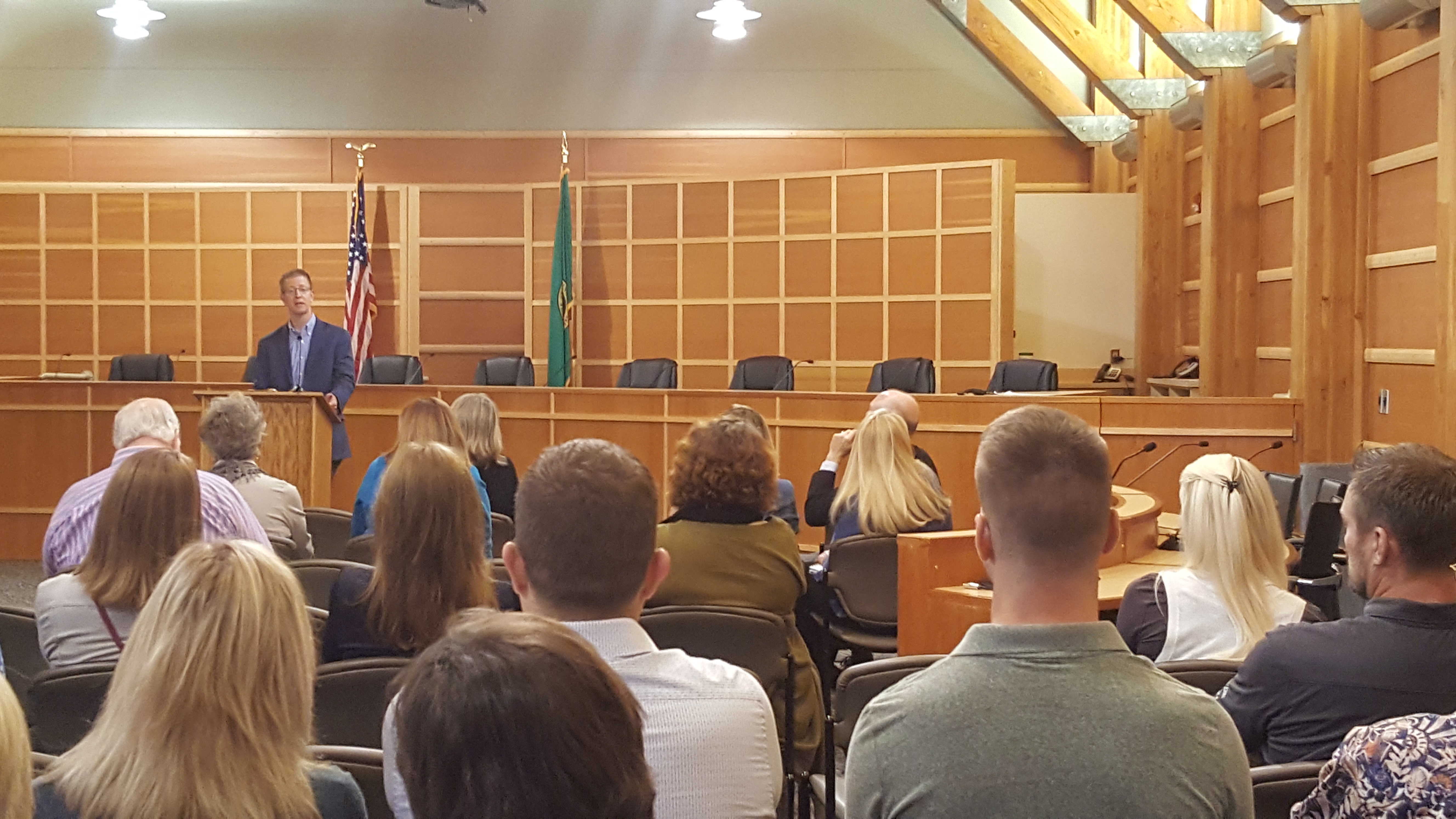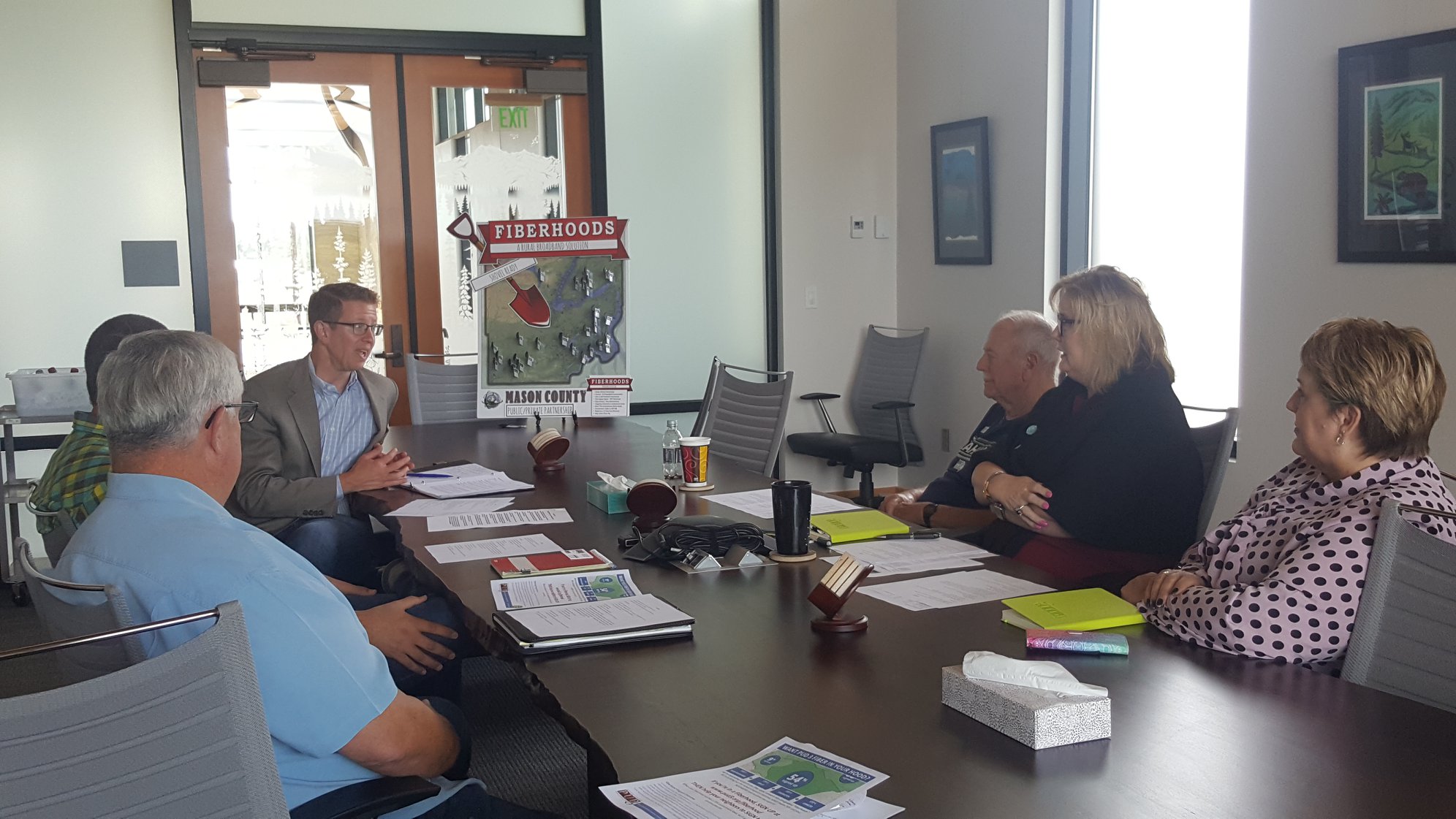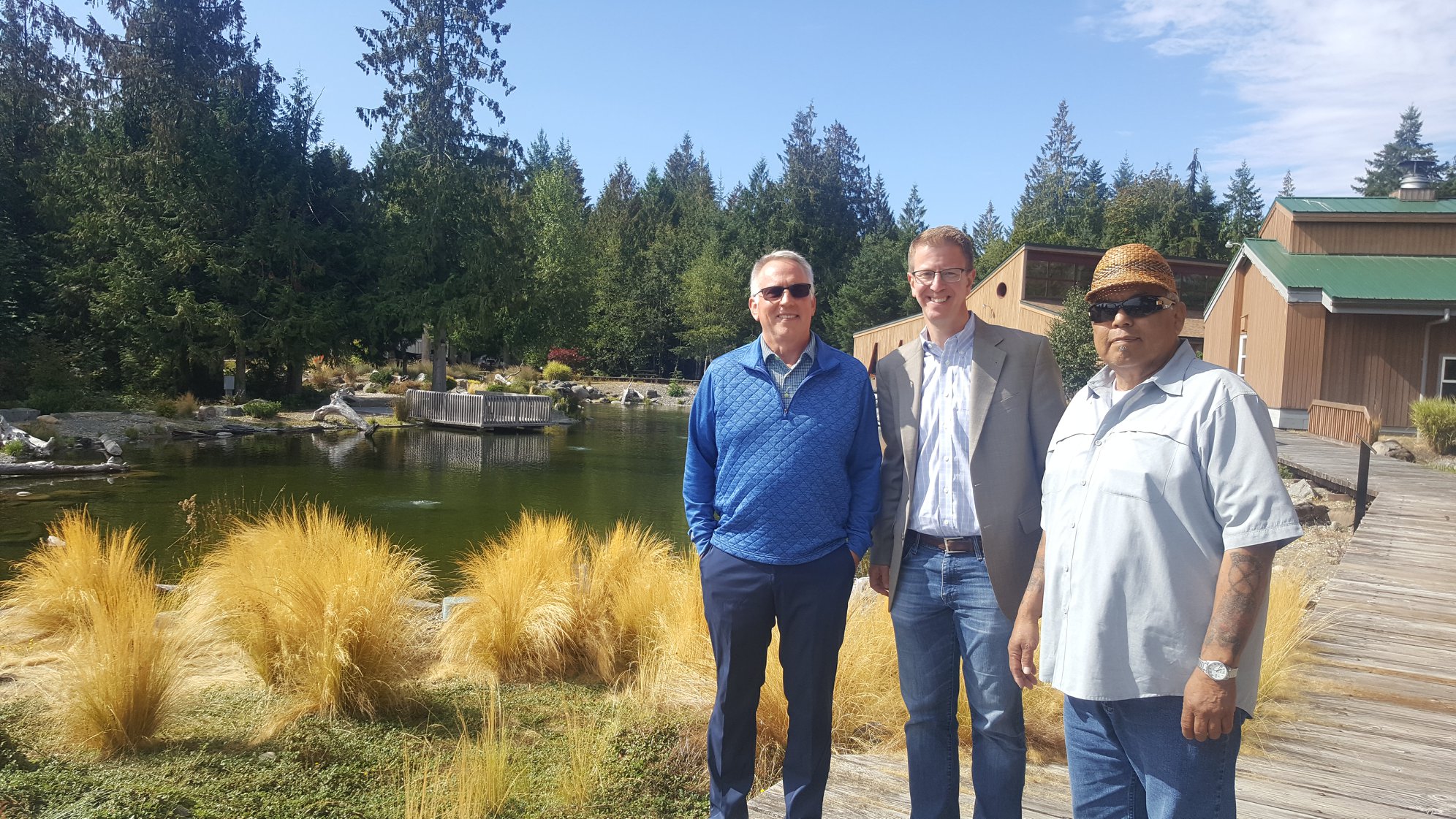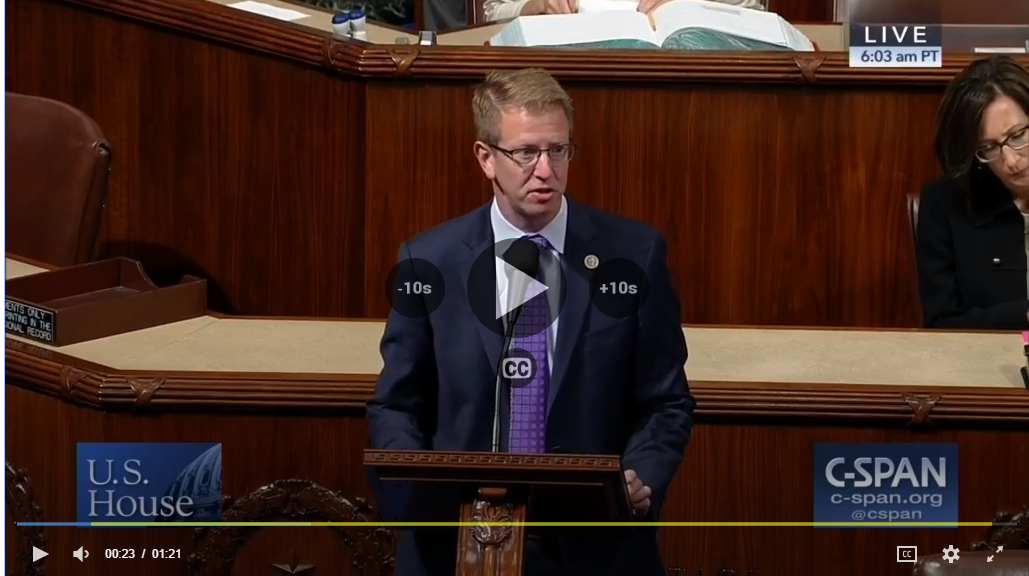Respecting Workers
It was a busy district work period in Washington state. Throughout the month of August, I met with folks in nearly every nook and cranny of our region.
Following Labor Day weekend, Congress went back into session. (You wouldn’t know that summer is over based on the weather ... Last week in DC was filled with 90-degree days with 75% humidity).
I’m looking forward to a busy Fall ... while the Seahawks season isn’t off to a great start, I’m hopeful things will turn around.
Working for Us
If you’re a regular reader of this newsletter, you know that I usually end it with a section called “Working for You,” where I share what I’ve been up to for the last couple of weeks.
But the truth is, our region is full of public servants who quietly work for us every day. The folks throughout our region laboring at the Naval shipyard, managing our federal forests, guiding visitors through our National Parks, caring for our veterans and servicing our submarines are doing a lot for our nation and for our region’s economy.
When I’m in Washington, DC it often surprises people when I tell them that the federal government is the largest employer in our neck of the woods. But that fact keeps me focused on what’s at stake in many of the decisions that happen in Congress and at the White House.
Just before Labor Day weekend, President Trump decided to freeze the pay for our federal workers who were set to receive a modest cost of living adjustment in January. The president’s rationale was that the government couldn’t afford it.
I’m all for getting our nation’s finances in order. But, nickel-and-diming the hardworking people who serve us is the wrong way to do it, and it’s a disservice to the hard work they do. It also seems a little misguided coming after the president signed into law a tax plan, which the nonpartisan Tax Policy Center says gives the largest benefits to the country’s wealthiest households and raises the federal debt by trillions of dollars.
Cancelling federal pay raises is bad for our federal workers and their families. It is also bad for jobs and small businesses in our community, because it means the people who live here have less money to spend here.
I’m going to continue pushing back against the notion that the problem with the federal government is the people who work in government. I think that’s misguided. And there’s still an opportunity to restore the raises in a federal spending bill Congress is gearing up to debate (more on that in a second).
I had the opportunity to speak about this issue on the floor of the House last week. You can watch my remarks below.
More broadly, the jobs and opportunities the federal presence in our region creates is one of the big reasons I’m working so hard to fix our parks, modernize our forest practices and protect the shipyard and the people who work there from bad decisions in Washington, DC.
For example, earlier this year I helped repeal a change to the federal per diem rules that caused federal workers to pay more out of their own pocket for business expenses when they’re assigned to travel for work. I also blocked changes that would mean shipyard workers sent to Japan to service our aircraft carriers wouldn’t receive overtime when they work overtime.
It’s why I introduced The Federal Retirement Fairness Act after a group of shipyard workers came to me with a problem. A member of the group, Allen Hodge said he’s worked as a painter at the shipyard since 1989. He started out 28 years ago as a temporary employee, and the government converted him to a permanent position five years later. He’s now in his mid-fifties, and he told me he was starting to plan for 2020 when he will hit the 30 years of public service required for federal employees to retire with full benefits. He got a nasty surprise - those first five years he worked didn’t count toward the required 30 years. So now, he has to make a choice - either retire without the benefits that are commensurate with his experience and which he’s been counting on, or risk his health working five more years in a physically demanding job.The bipartisan bill I introduced would give federal workers like Allen the chance to pay into the pension program for those temporary years. If the bill passes, it means Allen can retire on time and with the same benefits as everyone else who has worked as long as he has.
I’m going to keep fighting for the people working for us, and for our region’s economy.
Another Month, Another Threat of a Shutdown
There are a lot of headaches when Uncle Sam runs the Human Resources department.
But nothing is more frustrating for federal workers than getting furlough notices because Congress can’t do its most fundamental job - funding the government.
Congress must pass a spending bill by the end of this month. That means that, as the end of September approaches, the nation is once again faced with the threat of a government shutdown because the country’s leaders don’t want to work in a bipartisan way.
This week, the House will likely pass a funding bill that covers some of the government functions. I’m hopeful that, in the coming weeks, Congress will work on a bipartisan plan rather than trying to score political points at the expense of our region’s economy and the hardworking people within it.
As you may recall, I’ve sponsored a bill called No Budget, No Pay. Quite simply, if members of Congress don’t do their job and pass a budget, they shouldn’t get paid.
Fixing Congress
Governing by a constant cycle of crisis leads to irresponsible budgeting and harmful spending decisions. Congress hasn’t passed a complete package of appropriation bills on time since 1996, and that’s a big problem.
The bill that ended the most recent government shutdown created something called the Joint Select Committee on Budget and Appropriations Process Reform and tasked it with fixing the broken process. I volunteered for the assignment.
The bipartisan group of 8 Representatives and 8 Senators has been meeting since March to hear from experts with different views and come up with a plan to fix the problem. Proposals are due later in the Fall. I volunteered for the assignment, because I think people deserve a Congress where they have a say and things get done. Stay tuned over the next few months for an update on our work.
I also recently worked with a group called the Problem Solvers to create the Break the Gridlock plan. Our proposal is designed to ensure we see less partisan bickering and more progress. Folks want a system where good ideas see the light of day - where there are fewer policies written behind closed doors.
I will post regular updates on the spending debate on my Facebook and Twitter accounts.
Working For You
The busy pace of the August district work period continued in the two weeks since I’ve written. Here’s a quick recap of what I’ve been up to in these last few days of summer.
Helping more people buy houses
I had a great time talking to Tacoma-Pierce County Association of Realtors about some policy ideas that will help make it easier for people to afford to buy a home. We’ve been working together to try to address challenges facing veterans seeking to use their VA home loans.

Connecting our Communities
I visited Mason PUD 3 to talk about how Congress can make it easier for rural communities to access high-speed internet. The Kitsap Sun recently wrote an article about it that’s worth a read. I’m grateful to the PUD for passing a resolution in support of the bipartisan Broadband for All Act that I recently introduced.

Protecting Tribal Rights
I have the unique privilege of representing the 11 federally-recognized tribes in our region. I recently visited tribal leaders for the Squaxin Island Tribe and the Skokomish Tribe. We spoke about how Congress must do more to live up to its trust and treaty obligations.

Checking in with local businesses
As a former economic development professional, one of my favorite things that I get to do in this job is check in with the businesses in our region that create jobs and drive our economy. Often times I get a quick business tour and get to take questions from employees. I call these visits Kilmer at Your Company visits (catchy, no?). In August I visited with 18 different businesses, and in the last two weeks, I stopped by Home Depot in Tacoma, the Tacoma Community Boat Builders, Taylor Shellfish Farms in Shelton, and Olympic Medical Center (where I was born!) in Port Angeles. Thanks for having me!

If you’d like me to visit your workplace, or if you have an idea for a policy or a problem with a federal agency that you’d like my team and I to look into, please let me know.
As always, I’m honored to represent you.
Thanks!
Derek

